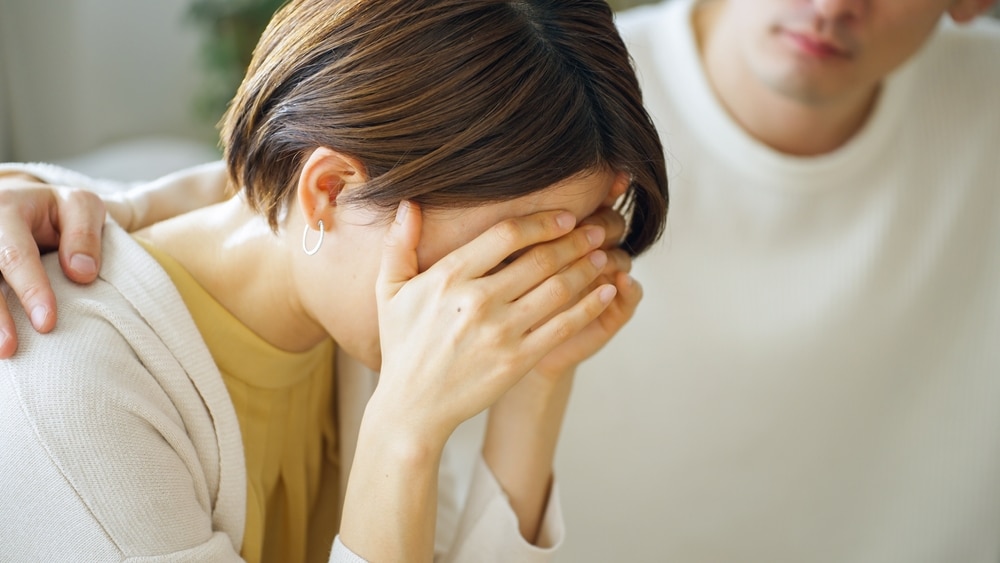Depression is the most common mental health disorder today. Symptoms can include a loss of interest in activities or socialization, feelings of hopelessness or worthlessness, and significant mood changes. All of these symptoms of depression affect the individual and their interpersonal relationships, particularly their partner.
How Depression Impacts a Relationship
Depression can impact a relationship due to:
- Emotional distance
- Changes in relationship responsibilities
- Communication barriers
- Reduced intimacy
There’s reduced physical intimacy and reduced communication. Physical intimacy takes several forms, like a quick kiss before bed or a hug in appreciation for making dinner. But when depression takes over, all of these forms of intimacy can go away. Moreover, someone struggling with depression might not realize that they have stopped conversing with their partner, or that they are not communicating what they are going through or why they have reduced intimacy.
The emotional distance between the couple can grow when symptoms of depression are not managed or recognized. One partner might be struggling with depression, and they become hyper-focused on the feelings of fatigue or worthlessness and don’t realize that they are cutting themselves off from their loved one. Conversely, the other person in the relationship will feel as though they are being regularly ignored. They will notice that the intimate conversations about work, children, stress, or goals that once happened start to diminish.
More practically speaking, depression can have an impact on responsibilities within the relationship. Someone who is struggling with depression might be experiencing significant fatigue and feelings of worthlessness that cause them to stop making food, doing the dishes, or playing with the kids as much. This shift in responsibilities adds additional duties to the other partner, which increases their stress levels. Moreover, the lack of communication can leave the partner with additional responsibilities, confused and angry.
Common Coping Strategies For Depression
The effects of depression on relationships can be multifaceted. What’s more, the symptoms of depression and how much they impact a relationship can change from one moment to the next. As such, it’s important to learn several coping strategies and to alter the coping mechanisms to fit with whatever detriment is happening at that time.
Communication and Emotional Support
Communication needs to be the most important coping strategy used in a relationship. An individual who is struggling with depression needs to learn how to open up about their feelings and experiences; otherwise, they will remain closed off.
Emotional support is similar, and both communication and emotional support will look different depending on your relationship. You might need to do some trial and error to find the types of coping strategies that fit your personality and the dynamics of your household most effectively. In some cases, treatment for depression can offer a faster way to find the most effective versions. Some examples of coping strategies might include:
- You might want your partner to acknowledge that you are struggling with symptoms of depression and give you a hug but not force you to talk very much.
- You might develop a code phrase so that whenever you see your partner and say “pickles,” they know that you need to snuggle on the couch until you feel better, have a cup of tea outside on the porch, or watch a specific movie.
Mental Health and Physical Health
Good coping strategies include finding self-care routines or lifestyle changes that are conducive to good mental and physical health. Your partner can be an important part of these changes by committing to the same activities as you do if you are the one struggling with depression or vice versa.
If you know that you have untreated trauma in addition to your depression, your role in good mental health might be to acknowledge that and get medication or therapy to manage those symptoms.
For physical well-being, your partner can help you manage things like food by committing to providing meals for the family or encouraging you to get physical exercise outdoors with a simple walk around the neighborhood, even if your depression symptoms are high.
Getting Professional Depression Therapy with Water Gap Wellness Center
When these coping strategies for depression fall short, there might still be a need for professional intervention. Water Gap Wellness Center specializes in top-tier mental health treatment programs. We have several levels of care, including:
With all of our outpatient programs, you and your partner can choose a flexible schedule that fits your other obligations. In doing so, you have a chance to come to our remote, peaceful facility for daily or weekly appointments.
These appointments serve as a safe and supportive place to work with professionals who can offer individualized coping strategies for with depression that build on the coping strategies you may already be integrating.
Our depression therapy is highly individualized and can facilitate communication and help address barriers to intimacy or emotional expression.
If you or your partner are struggling with depression, it can have a profound impact on the relationship. Learning coping strategies and seeking professional therapy for depression when necessary can help you manage the symptoms of depression and strengthen the relationship despite any existing mental health disorders.
Contact our team today to tour our facility.




